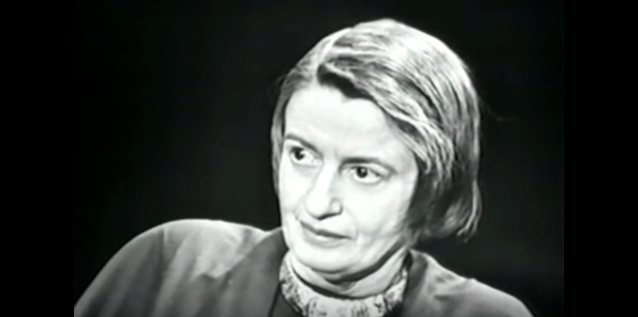Roll every attack ever leveled at Ayn Rand and her fans into one book review, and you get the New York Times’ take on Ideal, the play originally conceived as a novel appearing in print for the first time.
Here is the solid gold part of the Times piece:
The story is an ugly, diagrammatic illustration of Rand’s embrace of selfishness and elitism and her contempt for ordinary people — the unfortunate, the undistinguished, those too nice or too modest to stomp and roar like the hard man Howard Roark in “The Fountainhead.” It underscores the reasons that her work — with its celebration of defiance and narcissism, its promotion of selfishness as a philosophical stance — so often appeals to adolescents and radical free marketers. And it is also a reminder of just how much her didactic, ideological work actually has in common with the message-minded socialist realism produced in the Soviet Union, which she left in the mid-1920s and vociferously denounced.
The only redeeming feature of “Ideal” is that both the novel and play are slender works, giving Rand less space to bloviate than in “Atlas Shrugged” and “The Fountainhead.” As it is, her characters here make comically portentous statements and engage in breathless, grandiose exchanges.
… The point throughout much of this novel and play — as it is in much of Rand’s work — is that most people are sniveling fools or sheepish sheep, afraid to pursue their dreams or claw their way to the top: They are hypocrites unable to live up to their professed ideals, cowards who live vicariously through others.
Classic.
Featured Image Source: YouTube screengrab/CBS.




